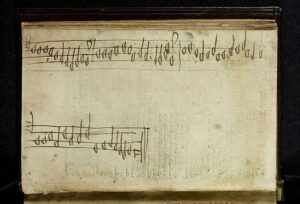The Lords of Flatbush, a 1974 film adapted from Leonore Fleischer’s popular book, is a slice-of-life exploration of adolescence set against the backdrop of 1958 Brooklyn. Starring Sylvester Stallone, Henry Winkler, and Perry King, the story delves into the lives of four lower middle-class teenagers navigating the challenges of growing up. With themes of friendship, love, and identity, The Lords of Flatbush captures the universal struggles of youth while offering a window into a bygone era.
1950s, A Glimpse Into Brooklyn
Set in the Flatbush neighborhood of Brooklyn, The Lords of Flatbush immerses audiences in the cultural and social dynamics of the late 1950s. The film’s characters frequent local hangouts like malt shops, indulge in harmless mischief, and grapple with personal and societal expectations. These elements provide an authentic portrayal of teenage life in post-war America, where traditional values often clashed with the growing sense of individualism.
The story follows four friends—Stanley Rosiello (Sylvester Stallone), Butchey Weinstein (Henry Winkler), Chico Tyrell (Perry King), and Wimpy Murgalo (Paul Mace)—members of a street gang known as the Lords. The gang, while mischievous, represents a tight-knit community that offers camaraderie and a sense of belonging in a world full of uncertainties. Through their interactions, audiences witness the tensions and bonds that define adolescent friendships.
Friendship and Growing Pains
At its core, The Lords of Flatbush is about the bittersweet journey from adolescence to adulthood. The film follows the four protagonists as they confront personal challenges and make life-altering decisions. Whether it’s Stanley’s struggles with family expectations, Chico’s rocky love life, or Wimpy and Butchey’s efforts to carve out their identities, each character’s story highlights the complexities of growing up.
Stanley Rosiello, played by Sylvester Stallone, is the emotional anchor of the group. A troubled teenager with unresolved family issues, Stanley is torn between his tough exterior as a gang member and his vulnerability as someone searching for purpose. Stallone’s performance brings depth and relatability to the character, foreshadowing the emotional complexity he would later bring to his iconic role as Rocky Balboa.
The film also explores the dynamics of young love. Chico Tyrell’s romantic pursuits drive much of the plot, offering both humor and heartbreak. His inability to commit and his tendency to chase fleeting passions create tension within the group and highlight the uncertainties of teenage relationships. These moments of youthful folly are counterbalanced by the film’s deeper exploration of loyalty, responsibility, and personal growth.
A Milestone in Pop Culture
While The Lords of Flatbush may not have the cultural dominance of Stallone’s later projects, it remains a significant piece of cinematic history. The film was a financial success, offering a high return on its modest budget. Its relatable themes and strong performances resonated with audiences, cementing its status as a cult classic.
For Sylvester Stallone, The Lords of Flatbush was a career-defining moment. His portrayal of Stanley Rosiello showcased his ability to blend toughness with vulnerability, setting the stage for his breakout role in Rocky just two years later. The parallels between Stanley and Rocky are hard to ignore—both are working-class individuals facing personal and societal struggles while striving to find their place in the world. These shared themes of resilience and self-discovery became hallmarks of Stallone’s career.
Henry Winkler also gained recognition for his role as Butchey Weinstein. Shortly after the film’s release, Winkler became a household name as the lovable and cool Arthur “Fonzie” Fonzarelli in the hit television show Happy Days. His performance in The Lords of Flatbush hinted at the charisma and charm that would define his later career.
Themes That Transcend Time
Despite its period setting, the themes of The Lords of Flatbush remain relevant. The film’s exploration of identity, friendship, and the transition to adulthood resonates across generations. It captures the universal challenges of finding one’s place in the world while grappling with societal expectations and personal insecurities.
The camaraderie among the four friends is at the heart of the story, reflecting the strength and complexities of teenage friendships. These relationships are often marked by unspoken loyalty, moments of conflict, and a shared understanding of life’s struggles. Through their interactions, the film portrays friendship as a source of both comfort and growth.
The film also critiques traditional gender roles and societal norms. While the characters initially conform to stereotypical portrayals of masculinity, their individual stories reveal a deeper vulnerability and emotional complexity. For example, Stanley’s relationship with his girlfriend Frannie offers a glimpse into the pressures of early commitment and the expectations placed on young men to assume adult responsibilities.
A Snapshot of 1950s Culture
The Lords of Flatbush is as much a time capsule as it is a coming-of-age story. The film captures the essence of 1950s America, from its fashion and music to its cultural attitudes. The characters’ leather jackets, slicked-back hair, and affinity for rock ‘n’ roll reflect the influence of the burgeoning youth culture of the time.
The film’s setting in Brooklyn adds an additional layer of authenticity. The neighborhood’s working-class roots and diverse community provide a rich backdrop for the story. Through its detailed portrayal of daily life, the film offers a glimpse into the struggles and aspirations of a generation shaped by post-war optimism and the challenges of economic disparity.
Legacy and Influence
The Lords of Flatbush holds a special place in the canon of coming-of-age films. Its exploration of teenage life, coupled with strong performances from its cast, has ensured its lasting appeal. The film’s success also paved the way for future projects that blended humor, drama, and social commentary.
The movie’s impression extends beyond its storyline. It introduced audiences to actors who would go on to become icons in their own right. Stallone’s success with Rocky, Winkler’s rise to fame with Happy Days, and Perry King’s subsequent work in film and television all trace their roots back to The Lords of Flatbush.
No comments yet.







